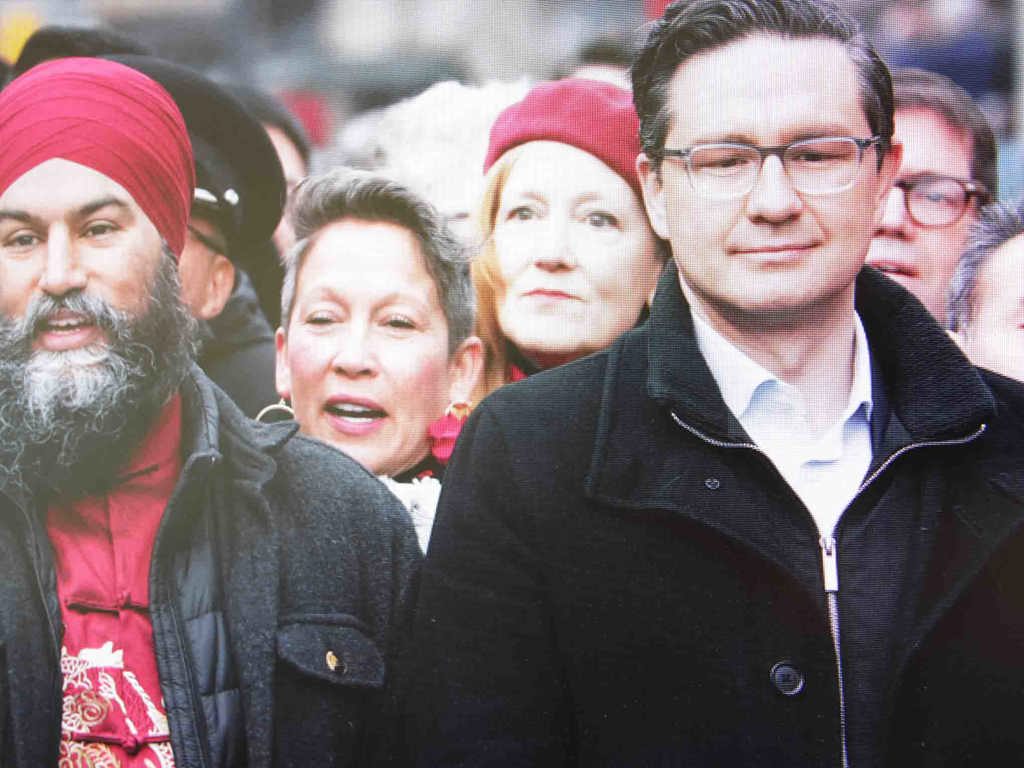A non-binding motion proposed by Conservative leader Pierre Poilievre to extend carbon tax pauses for home heating oil captured NDP support, but ultimately failed to pass.
On Nov. 6th, Poilievre’s motion saw 136 ‘Yea’ votes and 186 ‘Nay’ votes.
While the Federal NDP and the Conservatives rarely—if ever—find areas of common ground, the opposition’s motion gathered the support of the NDP, as it proposed to expand carbon tax breaks for all Canadians.
“The motion today is for once not a crazy climate-denying motion.” said NDP MP Peter Julian, in reference to the NDP’s support for the bill.
In contrast, Liberals, Bloc Québécois and Green Party Members of Parliament firmly stood against expanding carbon tax pauses for all kinds of home heating.
The Conservative-led, non-binding motion builds off Prime Minister Justin Trudeau’s announcement of a three-year pause on federal carbon taxes for home heating oil. The carbon tax pause aims to ease the financial burden placed on low-income Canadians relying on home heating oil.
While the three-year pause applies nationwide, Statistics Canada reports point out that most homes relying on heating oil are mostly in the Atlantic Region, and only comprise three per cent of all Canadian homes.
Following the announcement, Justin Trudeau clarified that the federal government does not intend to introduce any more exemptions for the federal carbon tax. Instead, the Liberals intend to work closely with all provinces to support low-income residents relying on home heating oil to switch to heat pumps.
In response, the opposition’s motion proposed to expand carbon tax exemptions to apply to all forms of home heating across Canada. Both the Federal NDP and Conservative party argued that the Liberal government’s carbon tax pause on oil-based home heating proved to be divisive.
“We reject absolutely the Liberals’ divisive plan. We think it’s unfair. It pits regions against each other, and so we’re voting to reject the Liberals’ divisive plan,” said Jagmeet Singh, leader of the federal NDP.
As for the Conservatives, the Bloc Québécois’ backing of the Liberal carbon tax exemptions was largely interpreted as having unproportionately divisive effects for Canadians.
“[Justin Trudeau has] now signed on with [Bloc Québécois] to divide Canadians into two separate classes: those who will have to pay carbon tax on their heat, and a small minority who will get a pause from the pain,” said Poilievre after results on the motion were revealed.
Poilievre’s non-binding motion on expanding temporary carbon tax exemptions for various kinds of home heating unexpectedly grabbed the vote of NDP MPs. Despite the unprecedented support from NDP representatives, the bill was rejected.
Moving forward, the NDP is committed to continue negotiating for a removal of GST for home heating across Canada, as seen by a new NDP motion building off Poilievre’s.

